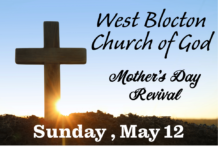The power of music to comfort, inspire, and express our deepest emotions is undeniable – or at least this is a constant truth in my own life. Throughout history, music, but hymns in particular, have been a source of solace and strength for people of faith. One such hymn that has brought comfort to countless hearts is “He Hideth My Soul,” written by the renowned hymnwriter Fanny Crosby. This beloved hymn has a rich history, and its lyrics reflect a timeless theme found in the Bible: God as a hiding place and refuge.
To truly appreciate the beauty and depth of “He Hideth My Soul,” it is important to understand the life of the hymn’s author, Fanny Crosby. Frances Jane Crosby was born on March 24, 1820, in Brewster, New York. At the age of six weeks, she lost her sight due to a botched medical treatment. Despite her blindness, Crosby grew up to be a remarkable woman of faith, with a deep love for music and poetry. She became a prolific hymnwriter, penning thousands of hymns that have been cherished by generations of Christians.
Crosby’s hymns were known for their heartfelt lyrics that reflected her unwavering trust in God, despite her physical limitations. “He Hideth My Soul” is a shining example of her poetic abilities and deep spirituality and how through every hardship she faced, she never seemed to overlook the security that can be found in Christ.
“He Hideth My Soul” was published in 1890, with music composed by William J. Kirkpatrick. The hymn’s lyrics are based on Psalm 32:7, which reads, “You are my hiding place; you will protect me from trouble and surround me with songs of deliverance.” Crosby’s poetic interpretation of this verse has brought comfort to countless souls over the years.
The hymn’s opening stanza sets the tone for the rest of the lyrics, with Crosby declaring:
“A wonderful Savior is Jesus my Lord, A wonderful Savior to me; He hideth my soul in the cleft of the rock, Where rivers of pleasure I see.”
Crosby’s use of vivid imagery paints a picture of God as a place of refuge, where one’s soul can find shelter from the storms of life. The reference to the “cleft of the rock” is a direct allusion to the story of Moses in Exodus 33:22, where God placed Moses in the cleft of a rock and covered him with His hand as a manifestation of His protection. Crosby’s lyrics beautifully capture the idea that God is a safe haven, where believers can find solace and security in the midst of life’s challenges.
The theme of God as a hiding place and refuge is not unique to “He Hideth My Soul.” Throughout the Bible, this concept is repeatedly emphasized as a source of comfort and assurance for God’s people. For example, in Psalm 46:1, it is written, “God is our refuge and strength, an ever-present help in trouble.” Similarly, Psalm 91:1-2 declares, “He who dwells in the secret place of the Most High shall abide under the shadow of the Almighty. I will say of the Lord, ‘He is my refuge and my fortress; my God, in Him I will trust.'”
In addition to the Psalms, other passages in the Bible also describe God as a hiding place and refuge. Proverbs 18:10 states, “The name of the Lord is a fortified tower; the righteous run to it and are safe.” Isaiah 25:4 says, “You have been a refuge for the poor, a refuge for the needy in their distress, a shelter from the storm and a shade from the heat.” And in the New Testament, Jesus Himself assured His followers in John 16:33, “In this world you will have trouble. But take heart! I have overcome the world.”
This recurring theme in the Bible demonstrates the unwavering and unchanging character of God as a safe haven for His people. He is a refuge in times of trouble, a shelter from life’s storms, and a source of comfort and strength for those who seek Him.
Since its publication over a century ago, “He Hideth My Soul” has been cherished by generations of Christians. Its heartfelt lyrics and beautiful melody continue to offer comfort and hope to those in need. The hymn has been recorded by numerous artists and has been sung in churches, revivals, and gatherings of worship all around the world.
The enduring impact of “He Hideth My Soul” can be attributed not only to its musical and poetic excellence but also to its timeless message of finding refuge in God. Fanny Crosby’s personal experience of relying on God as her refuge, despite her physical blindness, shines through in her lyrics, making the hymn resonate with deep emotional and spiritual significance.
In a world full of uncertainties and challenges, the hymn “He Hideth My Soul” by Fanny Crosby serves as a poignant reminder of God’s unwavering love and faithfulness. It encapsulates the biblical theme of God as a hiding place and refuge, offering comfort, hope, and assurance to those who put their trust in Him. As we sing the lyrics “He hideth my soul in the cleft of the rock,” we are reminded that God is our shelter, our fortress, and our safe haven, where we can find solace and security. Just as Fanny Crosby found comfort in God despite her physical blindness, may we also find refuge in Him, knowing that He is always there to protect, comfort, and guide us through life’s challenges. “He Hideth My Soul” continues to be a beloved hymn that inspires and uplifts, pointing us to the unchanging and ever-loving character of God, our eternal refuge.
Do you have a hymn you would like to know more about? Feel free to send in a request to savannah.pearce@bibbcommunitymedia.com or by giving me a call. I would love to hear from you!















